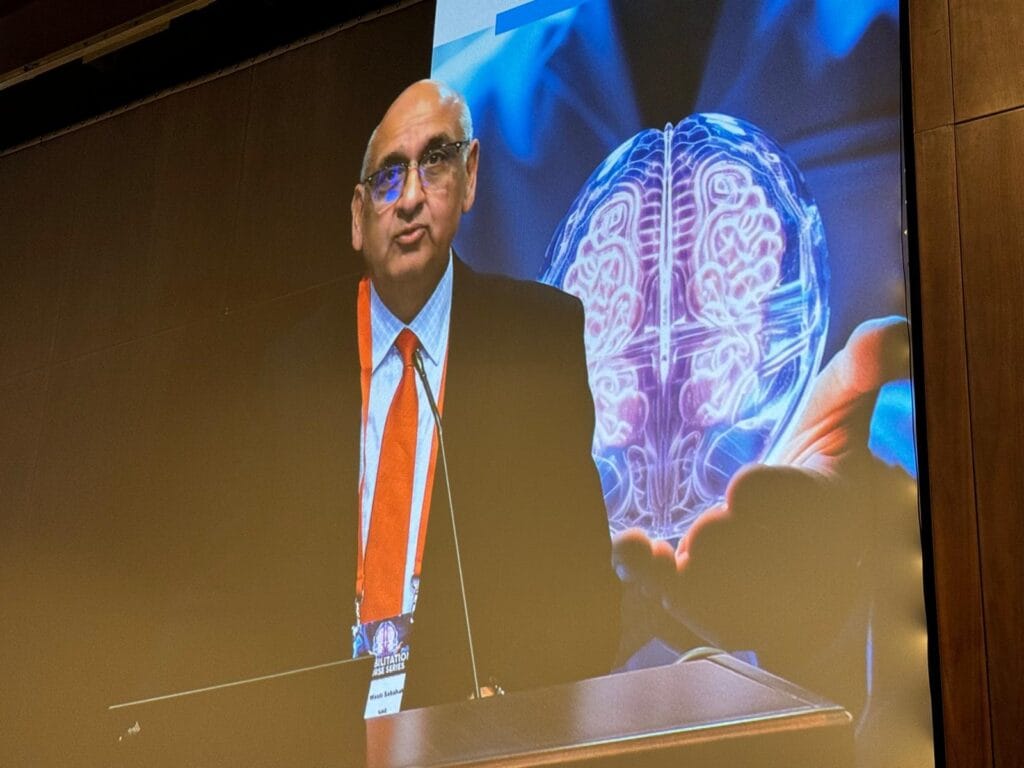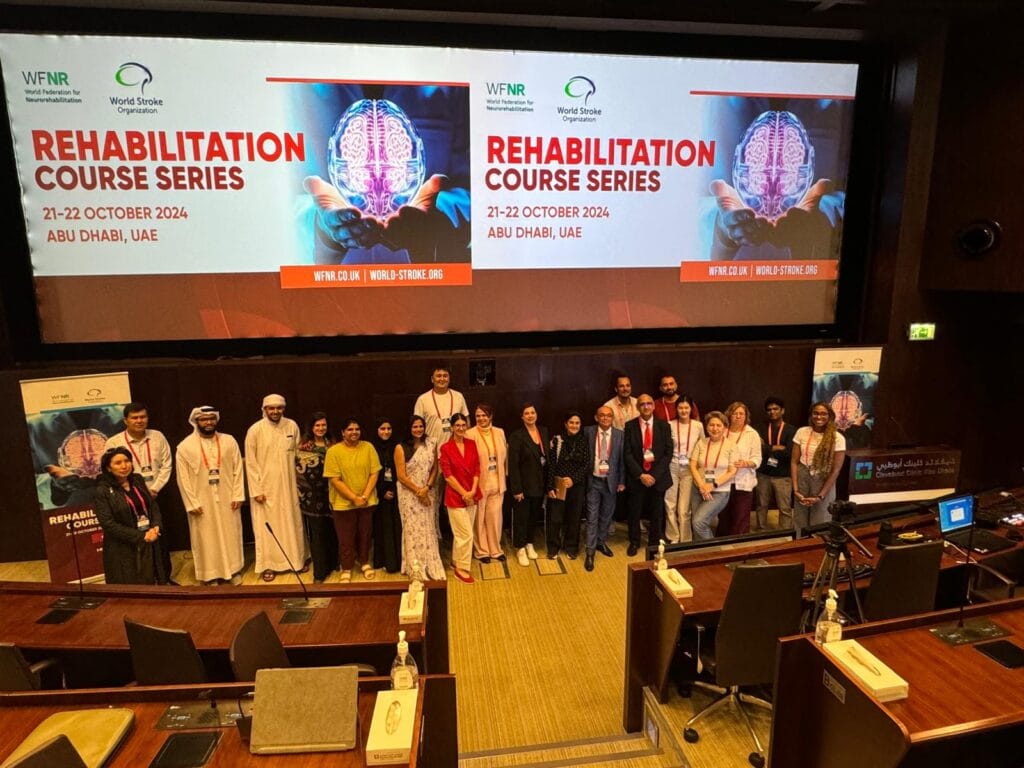Interview with Dr Sabahat Wasti at the WFNR-WSO Rehabilitation Course Series Abu Dhabi, UAE

Interviewee: Dr. Sabahat Wasti
Interviewer: Ms. Alexandra Gherman
A.G.: Dear Doctor Sabahat Wasti, as local coordinator here in Abu Dhabi at Cleveland Clinic, please share with us your overall impressions about this joint educational program, the Rehabilitation Course Series.
S.W.: It’s been an amazing success. It has been wonderful to hold it here in Cleveland Clinic Abu Dhabi. Thank you very much for bringing delegates from across nations and accommodating so many of our local attendees who have benefited from the knowledge that has been put out here by distinguished speakers. We’ve had speakers from all parts of the world. We had tutors from the United States, from Texas (Houston); we had Johns Hopkins physicians and therapists; we had people from Cyprus, Italy, and Austria who came and gave some wonderful teaching. And, of course, our local teachers who also joined the team of education providers. It is exceptionally good what has happened. I’m so thankful to the World Federation for NeuroRehabilitation (WFNR) and the World Stroke Organization (WSO) for allowing us to bring this wonderful course in neurorehabilitation and stroke to Abu Dhabi. I hope that in partnership with the European Federation for NeuroRehabilitation (EFNR), the World Federation for NeuroRehabilitation, and the World Stroke Organization, Cleveland Clinic will continue to provide high-quality education to people here and around the region.
A.G.: As a board member of the World Federation for NeuroRehabilitation, what future developments do you foresee in the Gulf region with respect to neurorehabilitation?
S.W.: The neurorehabilitation scene is vibrant in our area. It’s progressing. The rehabilitation services are improving; they are expanding. We are training more rehabilitation professionals now. A while ago, we had problems training occupational and speech therapists, but we had speech therapy trainees and physiotherapy trainees who attended the course. We are growing very well — the government and the Department of Health are supporting it in the United Arab Emirates. I also see that other Gulf countries—Saudi Arabia, Bahrain, and Kuwait—are developing their rehabilitation services very well, particularly neurorehab services. I see a very bright future. And, of course, if the service is going to expand, there is going to be an ever-increasing need for education, and I would urge the World Federation for NeuroRehabilitation to continue to support educational activity in this part of the world and continue to provide the rehabilitation course series. I think it’s a wonderful way of doing it, and we will, at Cleveland Clinic, continue to support it for the region. Perhaps next time we can do a different topic, but I think we should set up a series of educational events for the trainees and the rehabilitation professionals in our region. That’s my message for the World Federation for NeuroRehabilitation.
A.G.: Do you foresee any collaboration in the near future with the Indian Federation?
S.W.: I work very closely with Professor Nirmal Surya. He’s very supportive. He recently contributed to the Indian textbook of neurorehabilitation. Tomorrow we shall have a meeting about how to further that collaboration. India is a large country and their rehabilitation scene is expanding. They are very good with research and upcoming development of services. Being so close to us, it is going to be a very positive development if we can collaborate in educational activities.
A.G.: Thank you very much.
S.W.: Thank you!

We kindly invite you to browse our Interview category: https://efnr.org/category/interviews/. You will surely find inspiring perspectives from world-renowned specialists in t neurorehabilitation.









